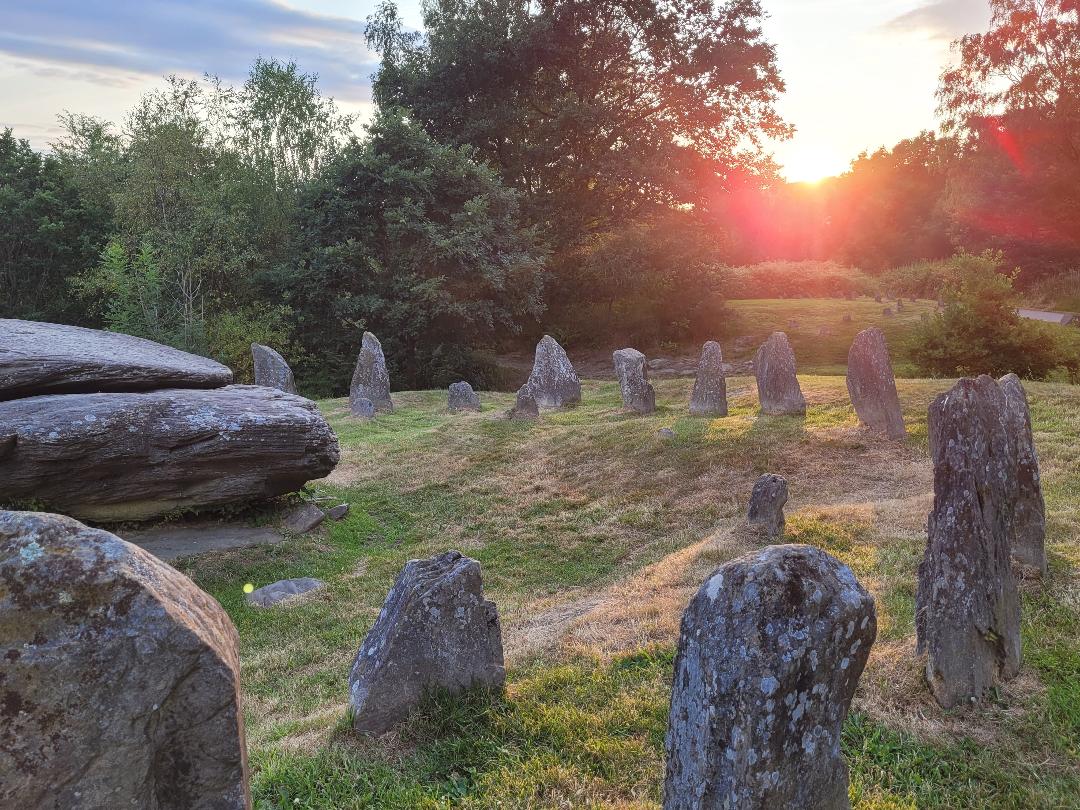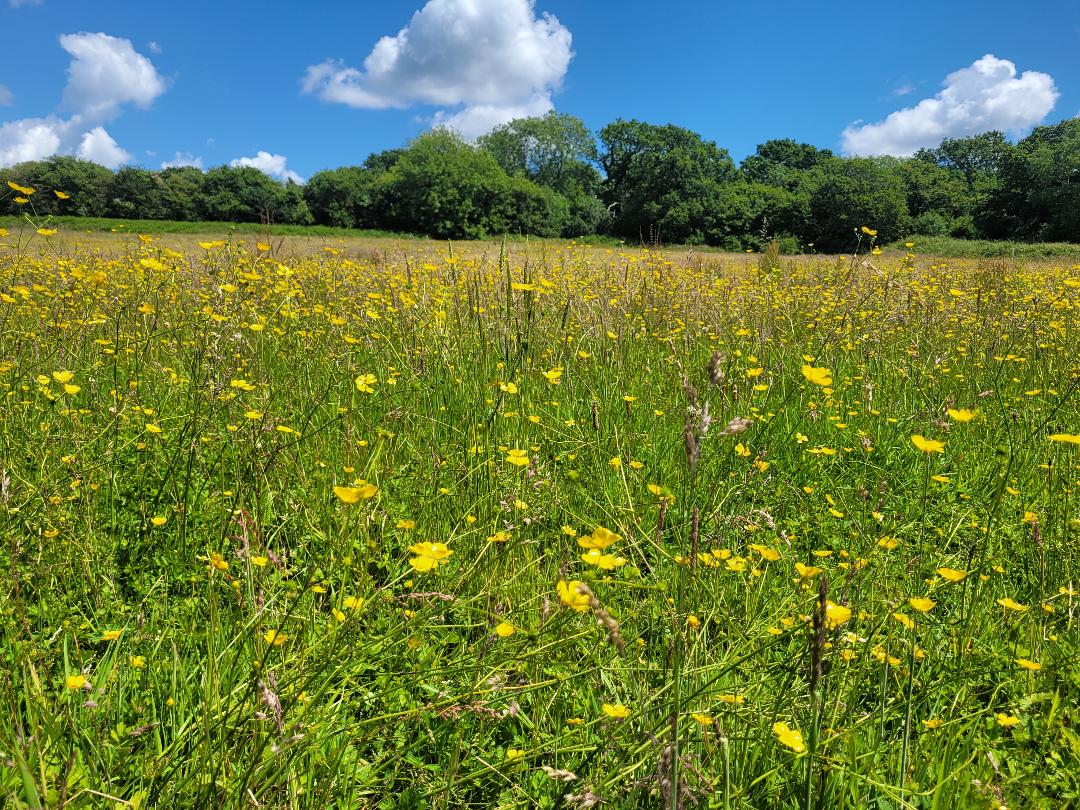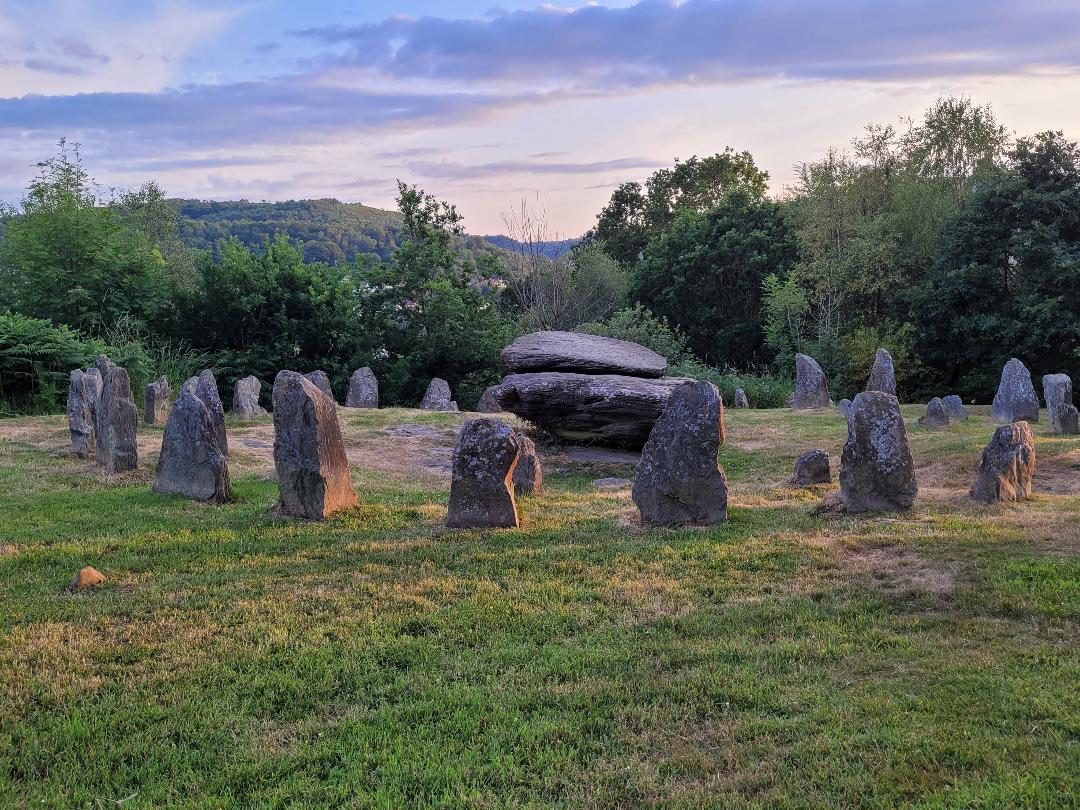On Being a Poet in Wales: clare e. potter

clare e. potter
It’s the summer solstice (sun-stand-still) which gives me pause to contemplate what that means and what it means to be a poet in Cymru.
I’m in the middle of a commission from artist David Mackie, to write about an area of incredible biodiversity in Cardiff.
I went there yesterday; the meadow was like an oil painting, teeming with varieties of grasses and wildflowers (the names in English and Cymraeg like a spell) and a buzzard that took off from meadow-level; I could feel it’s wing-swoop on my face.
Today begins the time of healing, of harnessing the sun’s energy to invigorate our creativity, and then on Monday, Gathering Day, to remember how the Druids gathered mistletoe for under-pillow prophetic-dream-inducing sleeps.

Healing the Pack
Having recently published my second poetry collection, Healing the Pack, I’ve had my fair share of dreams fueled by the rip-roaring anxiety of releasing a body of work after 18 years.
For all that in-between books time, I’ve been learning how to harvest poetry, for understanding, for triumph of joy over fear, and to share that practice with others.
I’ve been burrowing, reading and learning from the rich field of poetry and poets (known and ‘unknown’) in Cymru.

You’re never more than a standing stone or a rocking stone away from where a poet lived, walked, wrote here in Cymru. Which brings me on to where I live, Church Village.
Often stuck when writing an article such as this, or a poem whose ending evades, I’ll go up Pontypridd Common to Y Maen Chwyf (the Rocking Stone) surrounded by the Gorsedd circle of stones.
The rocking stone is an ice-age boulder, the center point for centuries of meetings of poets, nationalists and activists and a Bardic revival.
Think Dr. William Price with his fox hat or Iolo Morganwg, neo-druids. But I’m no historian, I go by feeling.
Sometimes, I lay my head on the stone, and perhaps a little eccentrically, when trying to write in Cynghanedd recently, I put my tongue on it.

Some years ago, an earlier commission by David Mackie, I worked on poems and songs for the pavements in Ponty town center.
My own contribution: ‘Under these stones a nation’s song pulses’ is a nod to Gwyneth Lewis’ inspirational poem fronting the Wales Millenium Centre and also to James and Evan James who wrote our national anthem and lived in Pontypridd.
But, as my cherished English teacher told me, James James was actually born in the Old Druid Inn in Hollybush, Blackwood.
Perhaps the inspiration for ‘Mae hen wlad fy nhadau’ has the Hollybush woods and the Sirhowy River keeping tune. A
nd that’s where I was born and bred. And yes, there’s a rocking stone nearby, up on Mynydd Bedwellte.
Cupboard girl
In Cefn Fforest juniors I liked to finish my work quick then hassle the teacher to go and tidy the crisp cupboard. I’d go in that cupboard, shut the door, sit on an upturned box of NikNaks and daydream.
My imagination had been fed by the community I grew up in and our stomping grounds where I walked with Mam and Dad and the dog— fields and hills where tumps of poets had been inspired, Edgar Phillips (Trefin), Islwyn, Aneurin Fardd, John Tripp, Ieuan ap Iago, for example.
But where were all the women bards? They were in their houses spinning and brewing, wringing and hanging their poems. And those too reached me.
There were blood aunties and street aunties, grandmothers and women who worked up the village square, a story to say and a melody in the saying.
As well as wishing I had an Adam Ant shirt, I thought about such things in the crisp cupboard and would now and again feel a poem bubble:
Time goes by ever so slow
ever so slow that you never know
until your back is turned away,
gone an hour, gone a day.
Eisteddfodau
I won a rosette for writing that in the school Eisteddfod. Eisteddfod, the engine of annual poetry writing across the generations in Cymru.
In my job now as a participatory artist (I think they call it), I find myself in schools and community centres, with charities and mental health organisations, festivals, art exhibitions.
I love this work. I feel it as a calling, to encourage others to see what poems we all have within us, or show how reading a poem, as I did once when reading Vernon Scannell’s ‘A Case of Murder’ makes us see something with such clarity as to change our whole sense of self and the world.
A few years ago as writer in residence for the Velvet Coalmine Festival, I was asked to go back to my junior school, forty years after I’d written that poem about time and its passing.
I asked the secretary if I could look in the cupboard. And I did.
And for a moment, I shut the door, and though it was a small space with shelves of stationery and maybe a mop bucket and sand for sick, all I could see was me, little and where it all began, popping a bag of crisps and licking the orange dust from the packet, just thinking while my mam was over the road buying ham and wool.

That’s plenty for me. Being a poet in Wales? I don’t know.
I could write another essay about my new journey into writing poetry in Cymraeg, a language I’m reclaiming. Crisp cupboard girl only had hwiangerddi/nursery rhymes, a few hymns and Nan’s swear words in Cymraeg.
I’ve been on a long journey since of re-locating my language and being creative within it.
What I’ll say though is, for me, I’m drawn back time and time again, despite having lived in the Deep South, Mississippi and New Orleans for a decade, to come back home to Cefn Fforest, Blackwood, Pontllanfraith, Tredegar and Pontypridd.
My home-turf is so generous, woodland, river, hill and meadow, and coal, iron and community, and a shared way of making sense of life being not-always-easy.
The humour, the grit, the fireplace and the coal bunker. All these, as I sit and write now bring to me as much joy as moschatel, tormentil, clychau’r cog.
They are my vocabulary, my naming. I want always to honor that. And to give back.
I want a name, a woman’s name for that girl in the cupboard, a way of seeing herself into the long line of those who love words and shaping them and want also to be shaped by them.
Some useful links:
Letter from Church Village for Nation.Cymru
Healing the Pack is published by Verve Poetry Press
Clare’s documentary about Cefn Fforest The Wall and The Mirror
Support our Nation today
For the price of a cup of coffee a month you can help us create an independent, not-for-profit, national news service for the people of Wales, by the people of Wales.






